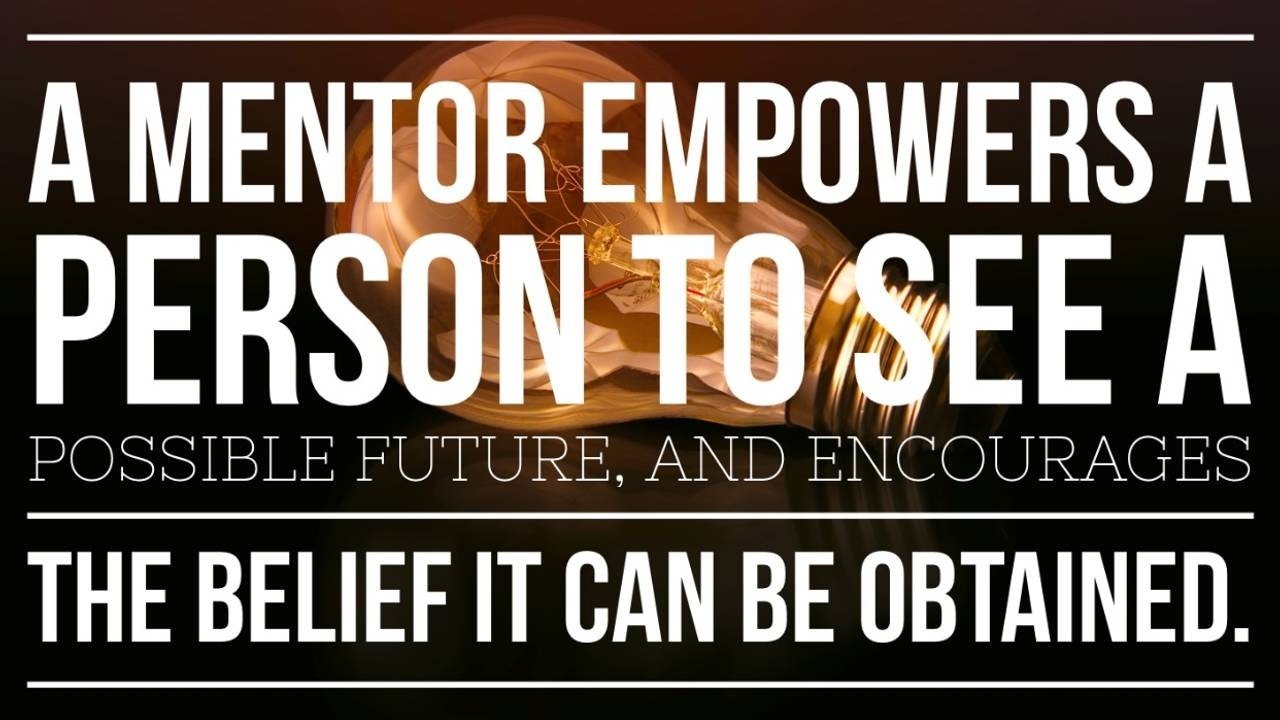How to Find a Mentor

Seeking to be more fully and objectively informed, Kelley and I invited randomly selected new Prepare to Launch U students to participate in small video chat focus groups about the course last week. And we learned a lot.
First off, the nagging idiosyncrasies that are all we see and hear when we watch ourselves on film, are barely noticed by our students. That’s a relief. Secondly, the content that we have worked tirelessly for two years to pull together (based on decades of professional experience before that) is accessible, easily understood, and valued by our students. Phew.
Students were generous and candid with their input and suggestions – and we are acting on them. We were particularly interested in the students’ learning experiences – were the lessons engaging? were the instructions easy to follow? was the content meaningful and relevant? (Fortunately “Yes”). One question got a near unanimous response from all four focus groups: What tripped you up?
It turns out that Tip 3 from our mini-course (which is also the pre-work to our full course) was especially tricky. In this exercise, students are guided through the steps of building a support network (a “tribe”) for their back-to-work journeys. Most had no trouble filling three of the four key spots in their tribe, but they got stuck on #2: the Mentor. These women, of all ages, from all academic and professional backgrounds, found it difficult to identify a single mentor. How can this be?
My dictionary offers this definition for mentor: an experienced and trusted adviser.
It offers these synonyms: adviser, confidante, counselor, guide, guru, instructor, teacher, trainer, tutor.
The first thing I notice when I read that assortment of words is that they represent ALL of the things most of us MOMS do and are for others every day. How is it then that we can’t identify a single one to guide and advise us?
I have a theory. When a woman trades in her briefcase for a diaper bag, she redirects her ambition and her energy to her family and her home. Feeling she has something to prove to justify her choice to opt out of the workplace, she singlehandedly attends to the needs of infant, child, teenager, spouse, elderly parents – all on only five hours of sleep, sandwich crusts, and lattes. Think about it. When has a woman-friend asked you for help? When have you asked for help?
Back when I was a professional, we asked for help unapologetically; we offered help, and had mentors (plural). There was more glory in collaborating with other experts to execute a project well than suffering, alone and depleted, to do it solo.
We need to reclaim this strategy.
You cannot successfully return to work without a mentor’s inspiration and guidance. You need the wisdom that comes from her experience. You need to see her success as a reminder that you, too, will succeed.
A mentor agrees to share her knowledge and experience with you. She can help you set realistic goals, develop and execute a plan to achieve them, and help you navigate challenges along the way. If these aren’t reasons enough to seek out a mentor, consider this: it has been reported that women who have mentors earn more, are promoted more frequently, and have higher job satisfaction than those who don’t.
Your mentor is out there – a woman in your community or neighborhood who has successfully returned to work. Maybe she’s an old professional colleague or fellow alum who is back in the game. Perhaps a social media friend who you see is moving and shaking in the field that you hope to return to. Use these guidelines to find yours:
– start by having some career direction. If you want to start a business, seek out an entrepreneur-mentor. If you want to work in a particular field or industry, seek out someone in that field or industry. If you’re looking to pivot into something new, find someone who pivoted herself. If you have no idea, seek out a mentor in a leadership or management position who has varied experience herself – and can help you figure out where you and your skills might be a good fit.
– know what you want to get from the relationship (e.g. career direction, honest assessment, resume advice, and networking connections) and how/in what frequency you want to work together (e.g. in person or by phone; at regular intervals or as needed)
– create a list of the professional qualifications you’d like your mentor to have. These can include: field, position, industry, career track, or company. Your mentor should be well respected at work and in the community.
– create a list of the personal qualities you’d like your mentor to have, including: availability/accessibility, trustworthiness, discretion, candor, honesty. Your mentor must be someone you feel comfortable with and someone you trust.
– brainstorm potential mentor candidates with your family, friends, and close connections. Potential sources include: your community or faith organization, former colleagues or bosses, members of professional or alumni networks, social media connections (e.g. LinkedIn).
Seek your mentor and, once you find her, ask her for help. Be bold and unapologetic, and know that:
- She’ll be honored that you asked.
- She’ll know just how to advise you because, in some shape or form, she has been you.
- She’ll want to advise you because she knows how important mentorship is. Because, most importantly remember this: she has a mentor, too.
